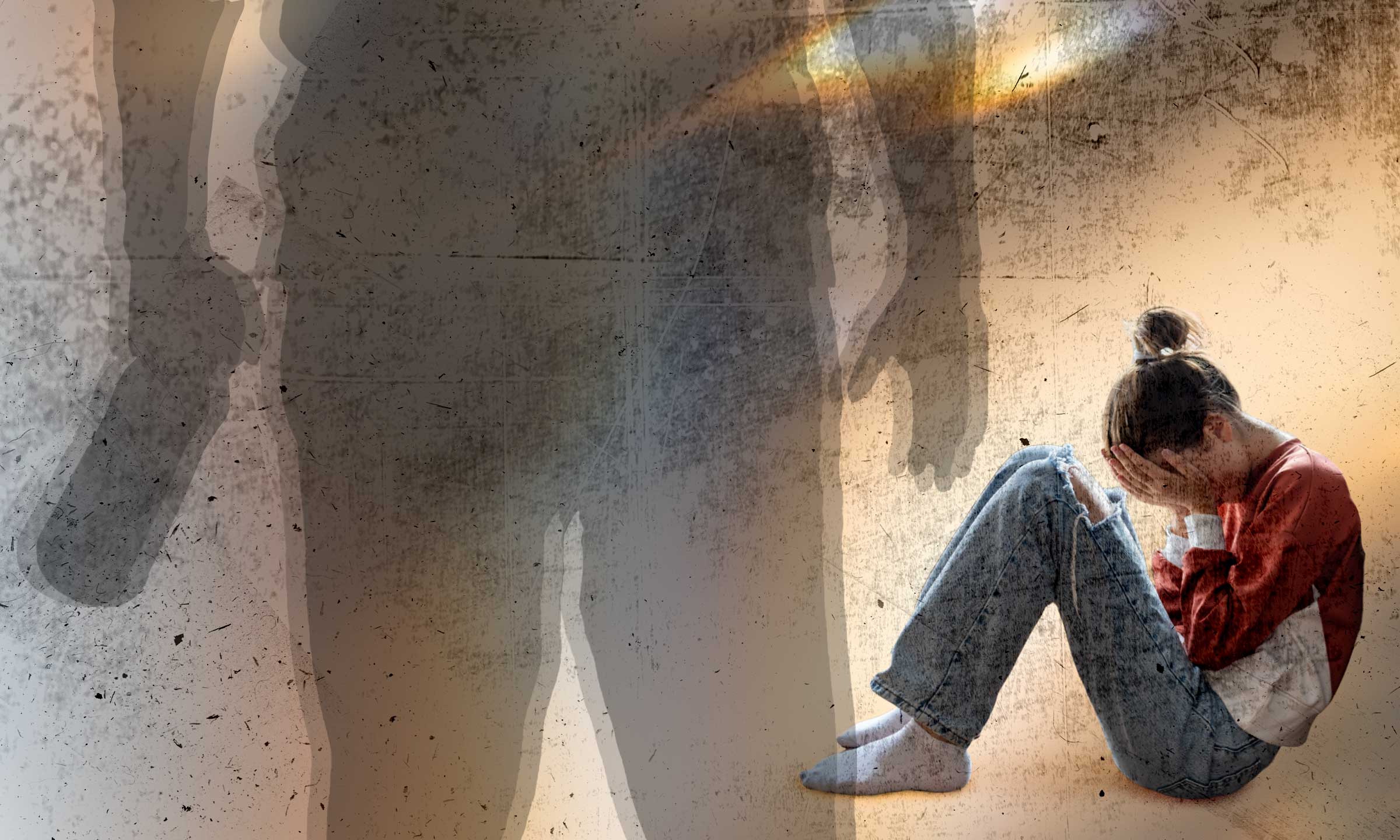Studies from the National Association for Children of Alcoholics estimate that one in five Americans—tens of millions worldwide—grew up in a home shadowed by alcoholism, carrying with them the hidden weight of family struggles and scars that linger into adulthood. As a communications professional, I’ve spent my life crafting narratives, helping others tell their stories. Yet, my own story has remained concealed—a narrative shaped by shadows I’m only now beginning to fully understand.
Why is it so easy to tell other people’s stories, yet when it’s our own, the words often falter?
Telling our stories unlocks long-shut doors, confronts tightly held memories, and breaks through the silence that can define us. By sharing, we illuminate an experience shared by those who’ve known the same shadows, fears, and loneliness. For those who grew up in homes similar to mine—homes bound by silence and hidden pain—this journey is an invitation to healing, resilience, and, finally, peace.
The Weight of Silence and Fear
Growing up with an alcoholic parent means living in a world shadowed by unspoken fears and constant chaos. In my family, silence became a tool for survival. We lived by the unspoken rules that Claudia Black, a pioneer in the adult child movement and author of “It Will Never Happen to Me!” describes so well: Don’t talk. Don’t trust. Don’t feel.
These weren’t merely habits but shields protecting against the harsh reality of my father’s addiction.
Fear was our constant companion—a low hum beneath every holiday, every meal, every quiet evening, often shattered by a slurred voice or sudden outburst. The sad realization for a child is that safety is never guaranteed.
The Legacy of Emotional Numbness
Over time, living in survival mode takes its toll. Emotional numbness becomes armor, a way to block out the pain.
As Joyce Rachelle, author of “The Language of Angels,” once wrote, “Some scars don’t hurt. Some scars are numb. Some scars rid you of the capacity to feel anything ever again.” For many, numbness serves as a survival mechanism, burying emotions under a calm veneer. But in doing so, we lose vital parts of ourselves, making genuine connection nearly impossible. Healing, I’ve learned, begins with acknowledging the pain we’ve been trained to ignore.
The Loneliness of Deception
Deception becomes a shield that keeps people at a distance, hiding one’s true self behind a carefully constructed mask. I became an expert at concealing my inner struggles, projecting an image of competence and control.
The “competent imposter” concept—appearing strong while struggling silently—is familiar to children of alcoholics. Many of us perfected the “stay-away smile,” exuding an air of calm while wrestling with inner turmoil. This double life creates a loneliness that cuts deeper than any single experience. Breaking free from this pattern required confronting the deception and allowing others to see my vulnerability.
The Burden of Early Responsibility
For children of alcoholics, the burdens are often more than emotional. We become peacemakers, the “grown-ups,” long before we’re ready. Many of us take on the role of silent mediators, trying to calm tensions and carrying responsibilities that no child should bear. This early role deeply shapes our identity, instilling a sense of duty to carry the weight for others.
Yet, in adulthood, healing requires self-compassion. This duty-driven identity often leads to a life defined by careful management, competence, and control. But the weight of holding a family together is exhausting. For me, healing meant recognizing that I didn’t have to bear the weight of everyone else’s pain. I could set boundaries and give myself permission to simply be.
Finding Resilience in Faith
In the darkest times, faith in God becomes a light—a steadfast anchor through moments of overwhelming doubt and despair. It offers stability and hope, illuminating the way toward reclaiming life from the shadows. With faith as a foundation, a path forward emerges, one that redefines the future, separate from past pain. Alongside faith, I have found that family and a commitment to health create pillars of resilience—the “Big Three” that ground and support a life defined by purpose.
Faith doesn’t erase pain, but it transforms perspective. In moments of profound loneliness, trust in God—the creator and sustainer of all—and the solace of prayer serve as a reminder that we’re never truly alone. Resilience, therefore, is not simply the ability to endure suffering but the grace to find purpose within it. This faith-fortified resilience becomes a bedrock, allowing us to break free from cycles of pain and move toward a life marked by hope and healing rather than the wounds of a lifetime.
Transforming Pain Into Strength
Healing isn’t about erasing the past—it’s about transforming it. While the scars remain, they no longer define who we are. Instead, they tell a story of resilience, survival, and courage. Forgiveness becomes a crucial step—not for others—but for us, the children of alcoholics. Letting go of resentment allows us to move forward, embracing life without the bitterness that once held us back. Forgiveness doesn’t mean forgetting—it means breaking free.
This forgiveness isn’t immediate—it’s a journey. It requires us to relinquish simmering anger, both toward an alcoholic parent and toward ourselves, for the survival mechanisms we adopted. Accepting these reactions as part of survival brings a sense of freedom. By releasing old resentments, it becomes possible to replace anger with compassion for ourselves and others.
Lasting Impact and the Road to Self-Discovery
The effects of growing up in a dysfunctional home don’t simply vanish. Trust issues, struggles with self-worth, and challenges with emotional expression often resurface. Yet, each step along the healing journey fosters a renewed sense of self, gradually reshaping one’s identity from “child of an alcoholic” to an individual with a powerful and unique story.
Healing is a gradual process—a journey of rediscovery, piecing together a sense of wholeness after years of fragmentation. Through this journey, our identity evolves beyond being a reflection of the past, becoming a testament to resilience and personal growth.
The Importance of Support and Connection
Support is fundamental to the healing process. Therapy provides tools to understand emotions, unpack coping mechanisms, and discover healthier ways to navigate challenges. Support groups like Adult Children of Alcoholics create a community of people who intimately understand these struggles.
There is immense healing in knowing we’re not alone. Listening to others’ stories and sharing our experiences makes invisible scars visible, validating experiences and emotions.
The companionship of friends, mentors, and others on similar paths offers connection, validation, and comfort. Being part of these communities fosters the courage to face old wounds and release emotions long kept hidden.
If there’s one key insight from this journey, it’s that connection heals. Stepping out of isolation and sharing stories builds bridges, leading us back to a truer sense of self.
Developing Healthy Coping Mechanisms
Healing involves replacing destructive habits with constructive ones. Walking in nature becomes a refuge—a chance to connect with calmness in the midst of chaos. Journaling creates a space for reflection, allowing long-suppressed emotions to find expression.
Practicing mindfulness and meditation offers a reprieve, centering us during overwhelming emotional moments. Each new habit strengthens our resilience, creating a toolbox to rely on whenever old feelings resurface.
Setting boundaries is also essential—both in relationships and our approach to life. Learning to say “no” becomes a protective measure rather than a rejection of others. Building and respecting these boundaries fosters healthier relationships and frees us from carrying responsibilities that aren’t ours to bear.
Creating a Positive Future
Today, I choose to build a life rooted in strength and joy. A new sense of purpose emerges as I set goals aligned with my true passions, nurture relationships that support my growth, and surround myself with friends and loved ones who encourage my healing journey. By focusing on a positive future, I reclaim years once shaped by silence and pain, transforming them into a foundation for resilience, fulfillment, and lasting peace.
The Journey From Darkness to Light
The path from darkness to light requires courage, a willingness to peel back protective layers that once served as shields but now hinder growth. Each step forward is a testament to the resilience of the human spirit, the power to heal, and the strength to transform. While this journey is deeply personal, its truth is universal: Within each of us lies the capacity to rise, to build a life that honors the past without being bound by it.
Healing is not a final destination but an ongoing journey—a continuous unfolding, a reclamation of the self from the shadows. My story is your story. I share it in the hope that others may find solace within it, that through these words, someone might see a reflection of their own experience and discover the courage to face their own shadows. Together, may those of us who grew up in similar circumstances move forward, not merely surviving but thriving—with resilience, strength, and the quiet assurance that we are worthy of peace.






